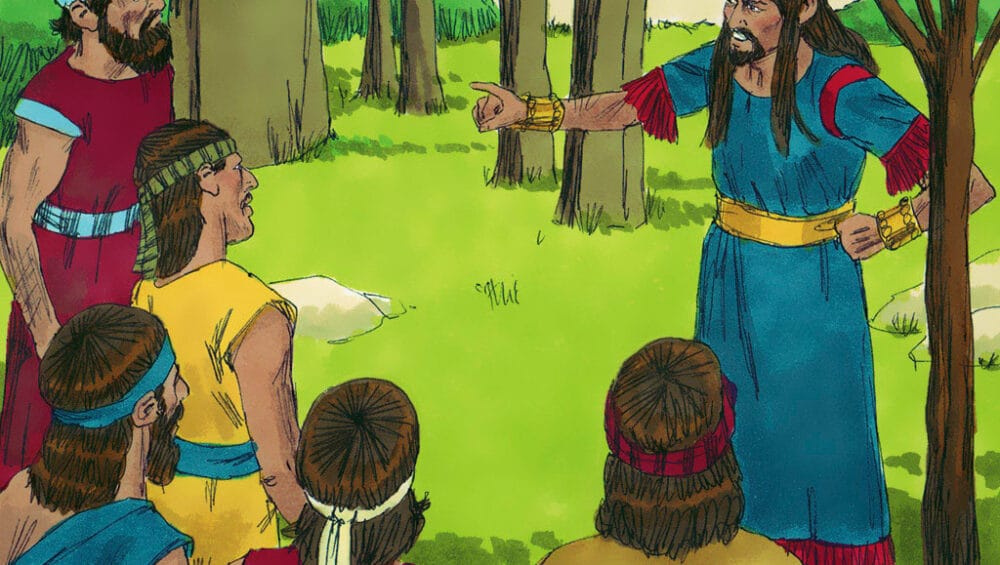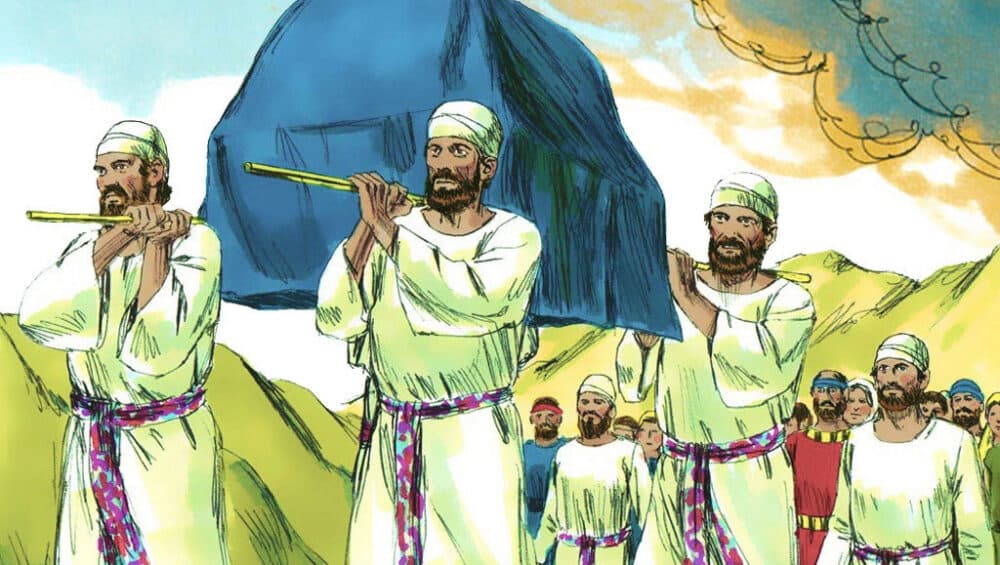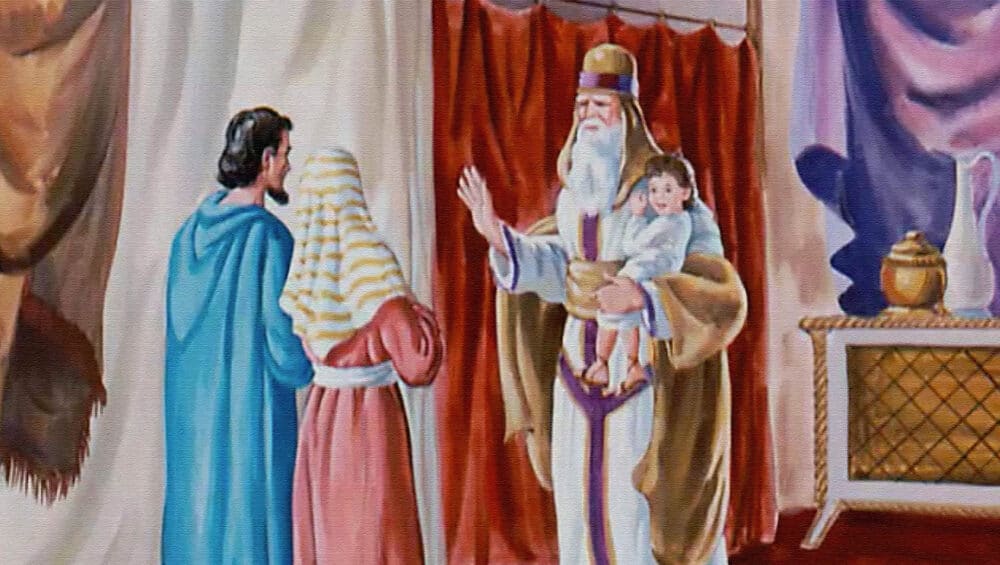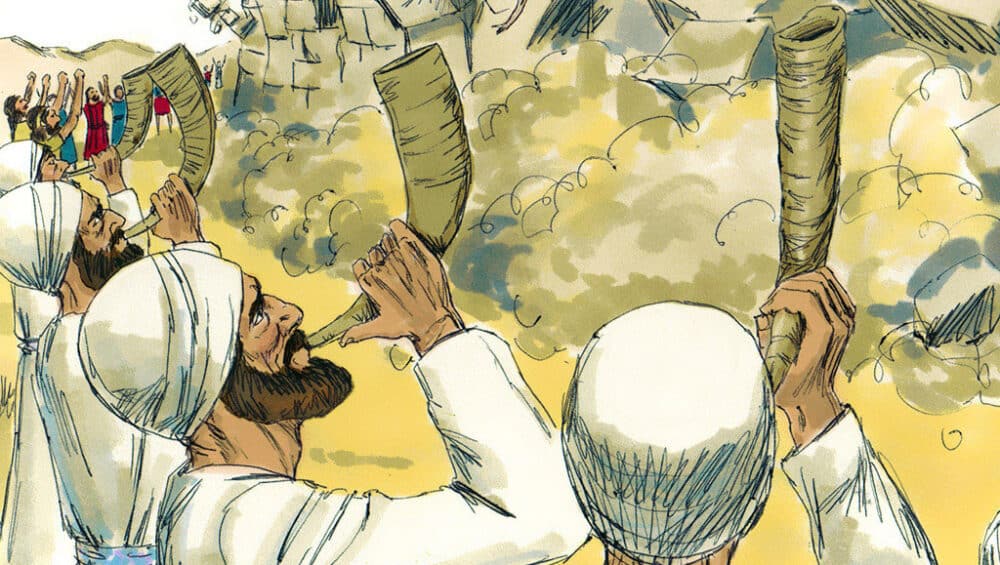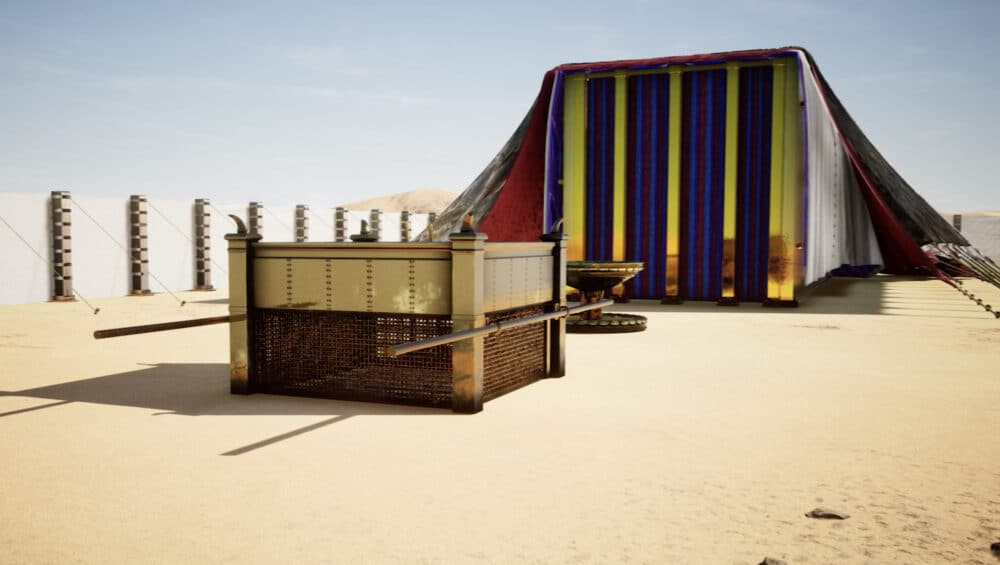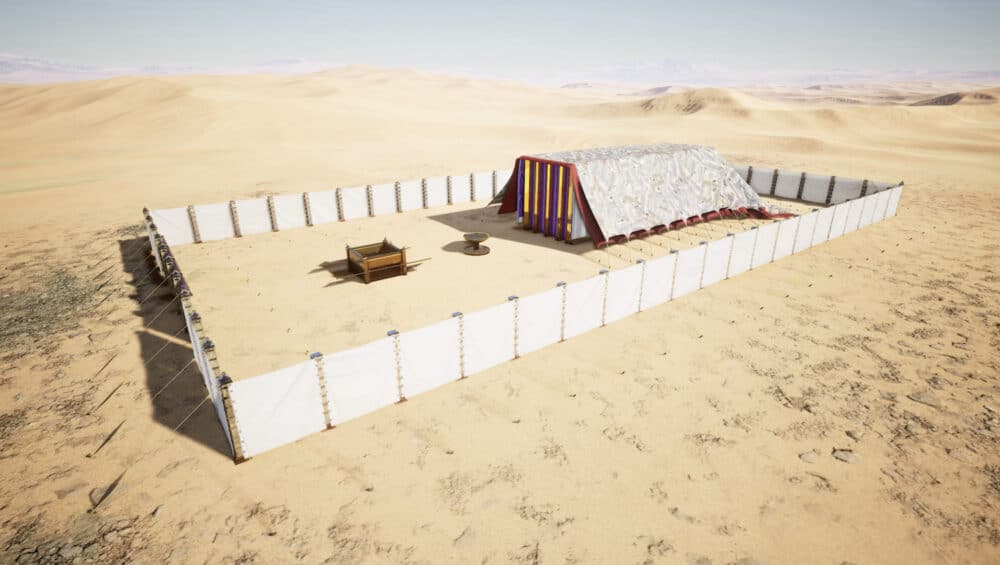Sweet Publishing / FreeBibleImages.org
Welcome to Livin’ Light’s Bible-In-A-Year challenge of discovering God’s love for us and His purpose for our lives. Here is the format for this great adventure: The daily reading assignment is posted at 5 a.m. After each day’s reading, Leigh An Coplin, the blog host, shares observations and poses questions about difficult passages to Rob Fields, who studied Christian Education at Asbury Seminary and currently teaches Biology in the Orlando area. To start from the beginning, click on 365 Bible Readings and scroll down to Day 1. The reading schedule is taken from The One Year Chronological Bible NLT.
Today’s Reading
— 2 Samuel 15-17:14
(976-972 BC) Click here for a timeline of the entire Bible.
Questions & Observations
Q. (2 Samuel 15:1-12): Before Absalom’s killed his brother, Amnon, in vengeance for sleeping with his sister (also Amnon’s sister, right?), Absalom and his father, King David, had a great relationship? Then, Amnon fled to his grandfather, so then there was anger from David toward Absalom. But, he also must have understood Absalom’s reasoning for killing Amnon. So is the rift between Absalom and his father just a huge psychological mess?
A. We don’t know what type of relationship David and Absalom had, but there is no reason to assume it was troubled. Absalom lived a privileged life that few in the ancient world would have ever known — not only was he the son of a wealthy king, but a recent reading told us that he was also handsome like his father. Regarding Amnon and Absalom, what the passage is implying is that Absalom and Tamar shared a mother, so that they were full brother and sister. Amnon was Tamar’s half brother. Don’t forget that this is one of our places we see the polygamy he chose gets David in trouble or causes tragic results.
Q. (2 Samuel 15:7-12): There seems to be a strong deviousness characteristic than runs in the royalty back then. Is that a psychological side-effect of having power? Maybe they are always greedy for the power and then once they get it, they can live in fear of losing it. Thus, there is deceit on all sides? I don’t think God would appreciate Absalom using offering a sacrifice as a reason to conspire to overthrow King David. There is also a story line here about free will. You would think that children would obey and honor their parents who take care of them, yet, as we read here, Absalom turns and plots to challenge his father, King David, for the throne. Is this another case of a person of notoriety — also seen in the sons of the priest Samuel —not raising his son in the right manner?
A. It’s a good question, but we don’t really have any way of knowing how David raised his many sons. Regarding Absalom’s deceit: one thing the story makes clear is that David is doing his best to be obedient to God and honor Him (by, for example, NOT having Shimei killed for cursing him) while Absalom is not interested in honoring God, as seen in his sleeping with his father’s wives, and lying about making a sacrifice to the Lord. As the text hints at the end, the Lord in this instance clearly favors David.
Q. (15:13-37): David runs without conferring with God. You would think He would talk to him about battle plans. I would think that this would anger the Lord. I do see that he is asking God to help him throw off Absalom in verse 31.
A. The reference to the Ark in 15:24 would seem to imply that David did request some form of council of God or at least His blessings.
Q. (16:1-4): I didn’t see this coming. So Mephibosheth is turning on David? How would Absalom’s capture of Jerusalem help Mephibosheth get his grandfather Saul’s kingdom back?
A. Let’s hold off on this one and see what happens.
Q. (16:5-14): David seems to be so rational toward Shimei. I wouldn’t think God would instruct Shimei to curse David, though.
A. Part of David’s humility in this story is his understanding that at some point, the Lord is going to be finished with him, and he will die, just as Saul did (though he will die much better than Saul). An extension of that, in my opinion, is that he is seeing what Shimei is doing as a potential extension of God’s extinguishing of his rule. The curse of Shimei might represent his own downfall.
Q. (16:21-22): These people had no privacy. Absalom certainly does not seem to have the wisdom of a king. Deceit yes, wisdom, uh uh. I can’t imagine having respect for someone who has sex with another man’s wives … in public. How could anyone look at a king when they have seen him in action in bed? These times seem so barbaric compared to what we experience today.
A. I think you’re right. We are much more private about our sex lives today, especially when it comes to our leaders. Their private matters are hardly ever in the news.
O. (17:5-14): I want to read on!
For further reading: A quick bio on Abasalom, https://www.learnreligions.com/absalom-facts-4138309
Shop: Christian shirts get noticed. Check out these conversation starters: https://livinlight.org/shop/
Tomorrow’s reading
— 2 Samuel 17:15-29
— Psalm 3
— Psalm 63
— 2 Samuel 18-19:30

